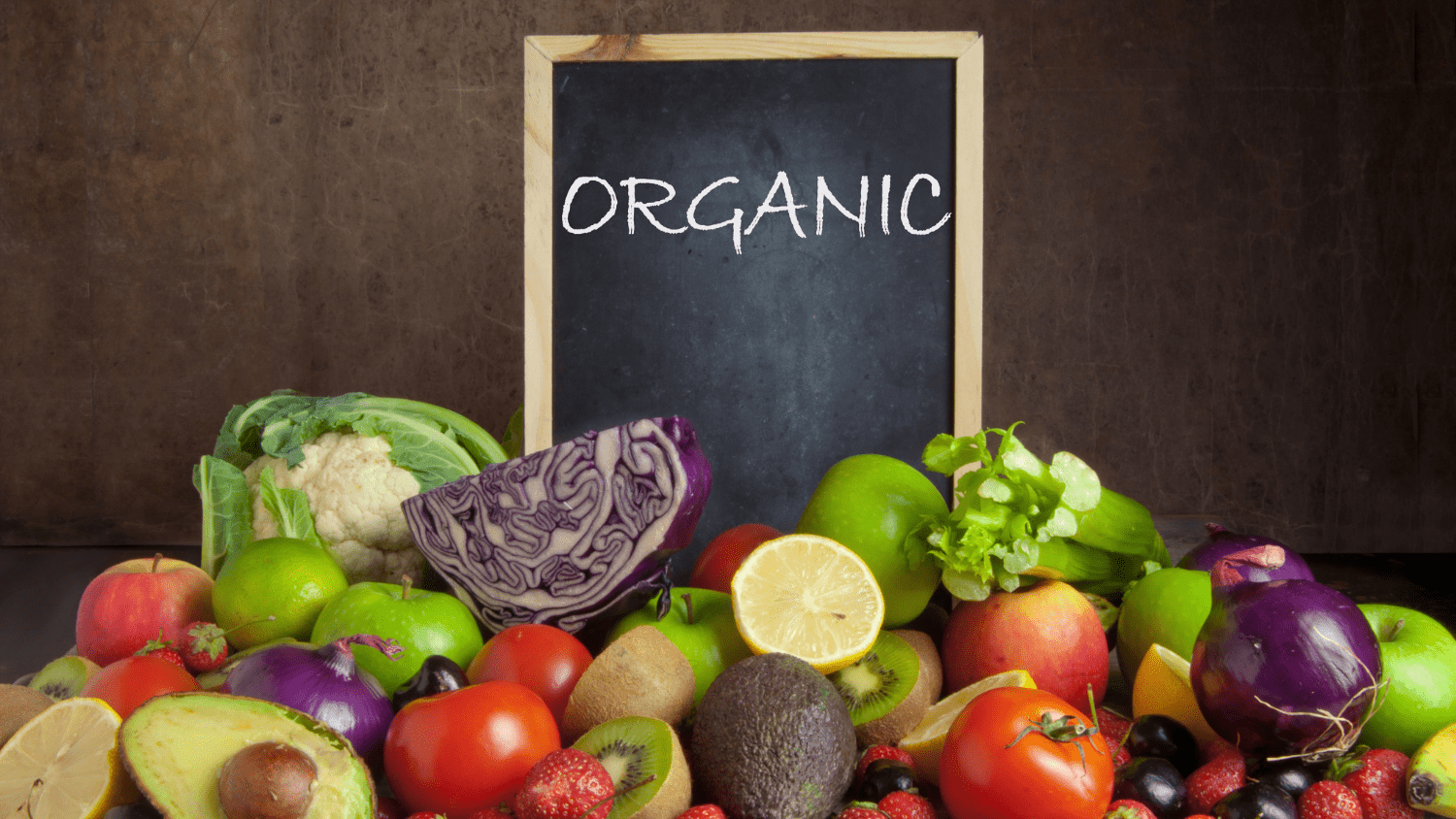There has been much debate about whether organic foods are better for overall health. They are certainly more expensive than conventionally-grown foods, but should health be risked to save on the grocery budget? According to Dictionary.com, the term organic is defined as, “characteristic of, pertaining to, or derived from living organisms.” Foods labeled as “USDA Organic” contain 95% organic ingredients while foods labeled “100% Organic” contain all-organic ingredients. Generally speaking, organic foods are thought to be healthier because they are pesticide-free, nutrient-dense, and are locally-grown.
Conventional farmers use commercial-grade chemical pesticides to ward off harmful pests and to limit the onset and spread of disease on crops. To kill weeds, these farmers also use herbicides which make the soil toxic. To prevent disease, conventional farmers feed antibiotics to livestock and fowl. These chemicals are subsequently absorbed into the foods that are later sold in local groceries. Once consumed in significant quantities, the body also becomes toxic which may result in declining health. There are small quantities of crops which are pest and disease- resistant, however, if it is conventionally-grown, the risks are considerably higher that the foods may be treated. Organic farmers use beneficial insects and birds along with traps to limit pests and disease. They also rotate crops, till the soil, pull weeds by hand, and apply mulch to planting beds to control weeds. Therefore, pesticide-free foods are better.
Conventional farmers now utilize GMO (genetically-modified organisms) seeds to ensure high crop yield. To enhance crop size, they also apply chemical fertilizers. Conversely, organic farmers use heirloom seeds which are pure. Using natural fertilizers like manure and compost to feed the plants ensures that the crops are toxic-free. It is believed that GMO seeds produce crops whose chemical makeup is significantly different from heirloom plants containing fewer vitamins and minerals. Whether or not organic foods contain more nutrients is still being debated. But advocates of organic eating say that there isn’t enough information about GMO seeds to risk one’s health.
Foods produced by conventional farmers are often grown in mass quantities, treated with preservatives, and shipped for hundreds of miles to markets across the country. These same preservatives are consumed and add to the toxin levels in the body. Organic foods are grown and sold within the same regions. Therefore, it is unnecessary to add preservatives. Less fuel is used to ship these foods which results in less road pollution and is ultimately better for the environment.
Non-organic packaged foods contain harmful chemicals, additives, and preservatives. Many of the other ingredients are highly refined. The nutritional value of these packaged foods is offset significantly by these additives. Ingredients like MSG (monosodium glutamate) and high-fructose corn syrup have been linked to obesity. Obesity causes a myriad of health problems including hypertension, diabetes, heart disease, and some cancers. Therefore, consuming non-organic packaged foods in excessive amounts is detrimental to good health. (Staff)
So, unless consumers begin producing their own food, they stand to make tough decisions when shopping. As a rule, it would be best to err on the side of caution and eat more organic and/or natural foods. Consumers should also prepare more of their own meals from scratch and avoid packaged foods and snacks. In the end, their health may very well depend on it.
Staff, M. C. (n.d.). Organic Foods: Are They Safer? More Nutritious? Retrieved March 12, 2012, from Mayo Clinic: http://www.mayoclinic.com/health/organic-food/NU00255

Leave a Reply